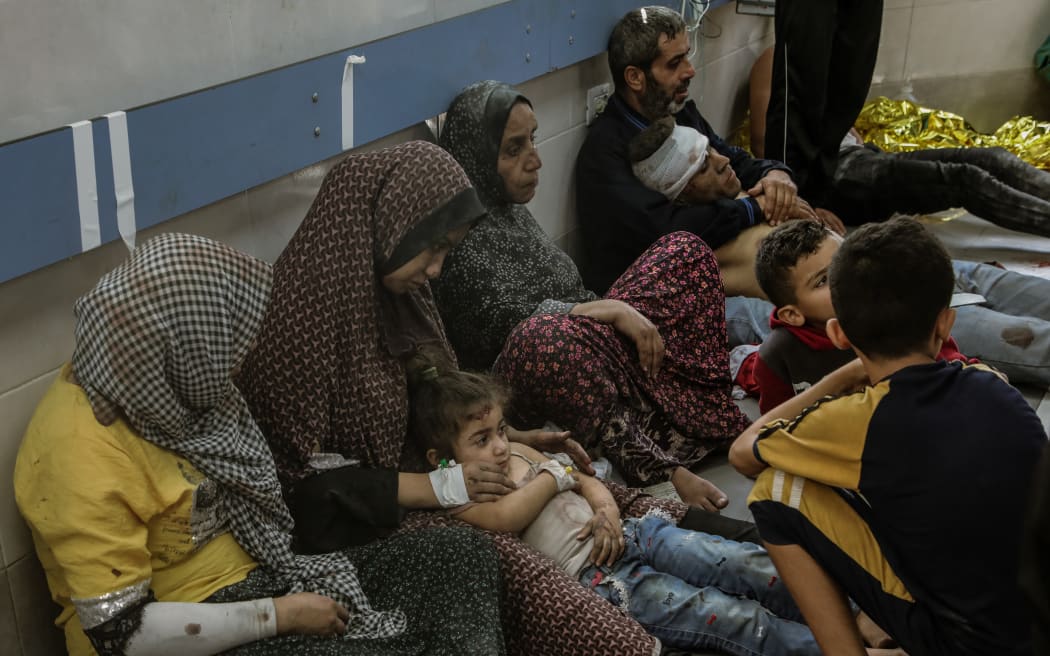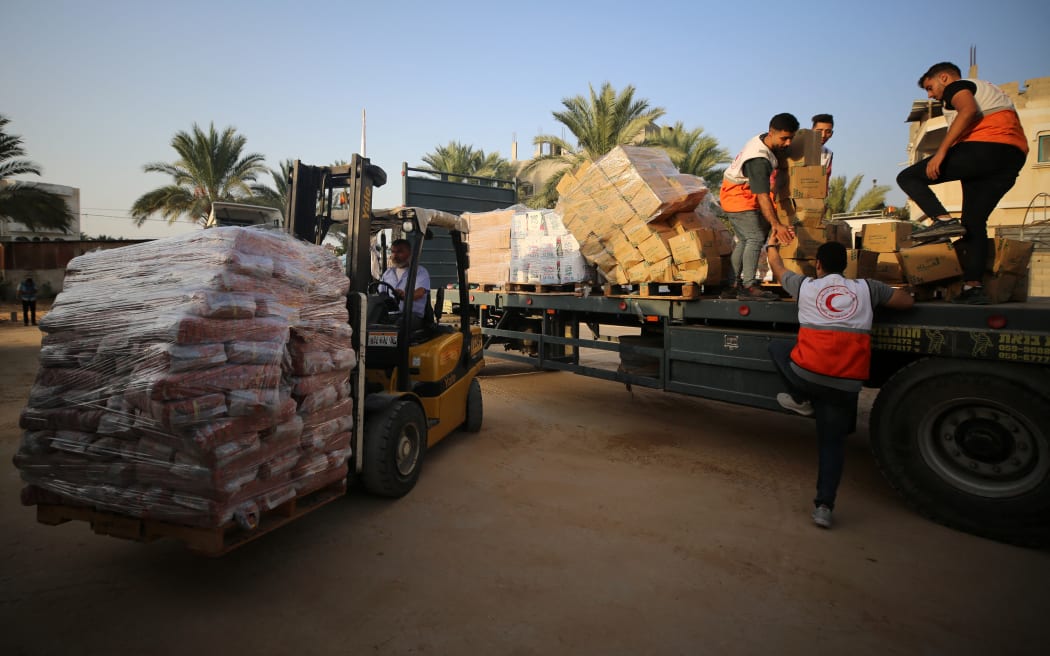The World Health Organisation is warning of a "public health catastrophe" if humanitarian access and an immediate ceasefire is not allowed in Gaza.
A third convoy of humanitarian aid trucks has delivered water, food, and medicine to devastated Gaza but the UN is warning fuel was not included and reserves will run out within the next two days.
This comes as Israel pledges "unrelenting attacks" with the aim of dismantling Hamas.
The current death toll being reported by the Palestinian Ministry of Health is 5000 plus Palestinian deaths, 1400 Israeli fatalities and many thousands injured.
Dr Margaret Harris from the World Health Organisation (WHO) told Checkpoint she spoke to her colleagues on the ground in Gaza last night.
"He said they did not get one wink of sleep all night because of the bombardment and the fear."
The number of people who had been killed had also increased a great deal, she said.
"On average, 200 or so people had been dying, [but] it was more than 400 in that previous 24 hours.
"In fact more people have now been killed in the last 15 days than the total number of people who died of all causes in 2022, so in just two weeks more people have died than... an entire year."
Dr Harris said hospitals were also using up supplies in a day that are normally used up in a month.
It was a situation that was "just unsustainable", she said.
Not enough supplies were getting into Gaza and even when they did get in, there was not always safe passage to the places that need them.
"We've not been able to supply, for instance, Al-Shifa Hospital, which is the biggest one dealing with the most casualties, we've not been able to get to them at all," she said.
Dr Harris shared reports about the hospitals that WHO had been able to deliver supplies to.
"My colleague reported that when they got there, the staff just ran out, went straight to the back of the truck and grabbed all the anaesthetic they could because they had been operating without anaesthetic and they were desperate to be able to provide pain relief."
WHO was already seeing scenes that were "beyond bearable" and her biggest fear was "a public health catastrophe", Dr Harris said.

Injured people rest at a hospital in Gaza on 23 October, 2023. Photo: Youssef Alzanoun / Middle East Images / AFP
"We are very afraid that there will be massive outbreaks ... of gastrointestinal disease, respiratory diseases, and again we're already getting reports [of that] among the children particularly.
"You [can] imagine, they're crowded together, they're not in sanitary conditions and they're already suffering outbreaks of diarrhoea.
"So you're losing people who have been killed by bombardment but now you're losing people who can't get enough care for their injuries."
And then there were infectious diseases.
"Infectious diseases don't respect borders so you are asking for massive outbreaks that could spread everywhere," said Dr Harris.
More trucks and fuel and a ceasefire needed - WHO

Red Crescent workers sort aid before being distributed to Palestinians, as the conflict between Israel and Palestinian Islamist group Hamas continues, in Khan Younis in the southern Gaza Strip, 23 October, 2023. Photo: Majdi Fathi / NurPhoto via AFP
Dr Harris said Gazans needed more aid trucks and a ceasefire to allow safe passage for supplies to get where they needed to go.
Hospitals also desperately needed fuel.
So far none of the aid trucks have carried fuel, and the UN was warning that reserves would run out in two days.
"Medical supplies aren't much use if the hospital doesn't have light, if it doesn't have the electricity to keep the ventilators going and the incubators going.
"The limitations on what can be delivered are a problem as well."
Dr Harris said while she was not a part of negotiations for a ceasefire, the most senior people in the UN were "desperately" doing what they could.
She said WHO was calling for "immediate ceasefire and [end] to the hostilities, humanitarian access and of course allowing in supplies and allowing in fuel."

